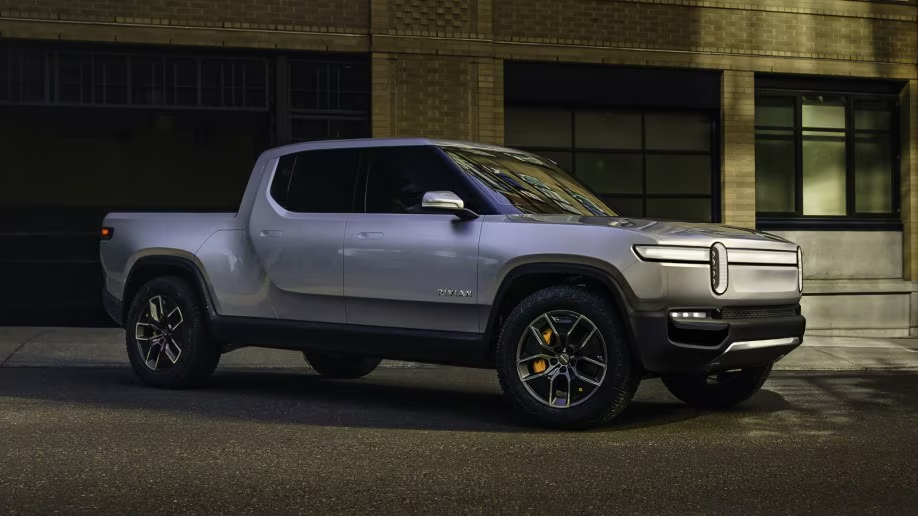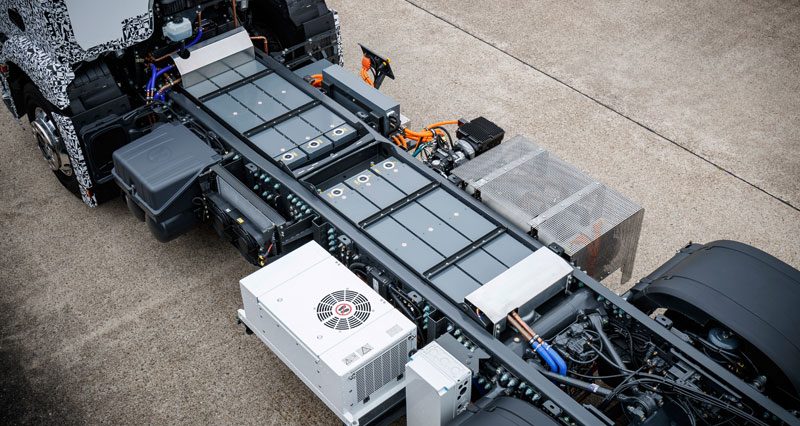Introduction
As electric trucks become more prevalent in commercial fleets, understanding the lifespan of their batteries is crucial for fleet managers and business owners. The longevity of an electric truck battery impacts operational costs, vehicle efficiency, and overall fleet management strategies. This guide explores how long electric truck batteries last, the factors influencing their lifespan, and best practices to extend battery life.
Understanding Electric Truck Battery Lifespan
Typical Lifespan of Electric Truck Batteries
- General Range: Electric truck batteries typically last between 8 to 15 years or 100,000 to 500,000 miles, depending on usage patterns and maintenance.
- Warranty Periods: Most manufacturers offer warranties ranging from 8 to 10 years or up to 150,000 miles, covering battery health and performance.
Factors Affecting Battery Lifespan
- Battery Chemistry: Different battery chemistries, such as Lithium-ion (Li-ion), Nickel-Metal Hydride (NiMH), and Solid-State batteries, have varying lifespans and durability.
- Usage Patterns: Frequent high-speed driving, heavy loads, and frequent charging cycles can accelerate battery degradation.
- Environmental Conditions: Extreme temperatures, both hot and cold, can affect battery performance and longevity.
- Charging Habits: Fast charging can lead to quicker degradation compared to slower, more gradual charging.
- Maintenance and Care: Regular maintenance, including software updates and avoiding deep discharges, can help extend battery life.
Factors Influencing Battery Degradation
Depth of Discharge (DoD)
- Impact: Deep discharges, where the battery is regularly drained to very low (or even empty) levels before recharging, can reduce battery lifespan. Maintaining a moderate state of charge between 20-80% is ideal for the longevity of your battery.
Charging Rate
- Impact: High-speed charging (DC fast charging) generates more heat and can accelerate battery wear and degradation compared to slower charging methods.
Temperature Control
- Impact: Batteries exposed to extreme temperatures (hot or cold) may degrade faster. Ensuring proper thermal management systems in the truck can help maintain optimal battery temperature.
Driving Conditions
- Impact: Urban driving with frequent stops and starts can be less taxing on the battery compared to highway driving at constant high speeds, which demands more energy and can generate more heat.
Best Practices to Extend Electric Truck Battery Life
Optimal Charging Practices
- Avoid Extreme State of Charge (SoC): Try to keep the battery’s state of charge between 20% and 80%. Avoid letting the battery drop below 10% or charging it to 100% frequently.
- Use Slow Charging When Possible: Use Level 2 chargers for regular charging and reserve DC fast charging for emergencies or when quick turnarounds are needed.
- Regular Software Updates: Ensure the vehicle’s software is up to date to benefit from the latest battery management improvements.
Maintain Optimal Temperatures
- Utilize Climate Control Systems: Use the truck’s built-in climate control systems to maintain battery temperature within optimal ranges.
- Park in Shaded or Climate-Controlled Areas: When possible, park the vehicle in shaded areas during hot weather and indoors during cold weather to protect the battery from temperature extremes.
Regular Maintenance
- Scheduled Inspections: Regularly inspect the battery and related components for signs of wear or damage.
- Battery Health Monitoring: Use telematics and fleet management software to monitor battery health and performance.
- Address Issues Promptly: Resolve any battery-related issues quickly to prevent further damage.
Advancements in Battery Technology
Solid-State Batteries
- Description: Solid-state batteries use a solid electrolyte instead of a liquid one, offering higher energy density and improved safety.
- Impact: These batteries promise longer lifespans, faster charging, and better performance in extreme temperatures.
Lithium-Iron Phosphate (LFP) Batteries
- Description: LFP batteries are known for their stability and long cycle life.
- Impact: They are less prone to overheating and have a longer lifespan compared to traditional lithium-ion batteries.
Battery Recycling and Second-Life Applications
- Description: As battery technology evolves, recycling and repurposing old batteries for secondary applications (like energy storage) are becoming more viable.
- Impact: This helps reduce the environmental impact and enhances the sustainability of electric trucks.
Case Studies: Battery Lifespan in Electric Trucks
Tesla Semi
- Battery Capacity: Approximately 500 kWh for the long-range version.
- Expected Lifespan: Tesla claims their batteries can last up to 1 million miles with proper maintenance.

Rivian R1T
- Battery Capacity: 135 kWh for the standard model.
- Expected Lifespan: Rivian focuses on robust battery management systems to ensure a lifespan of over 200,000 miles.

- Battery Capacity: Up to 131 kWh for the extended-range version.
- Expected Lifespan: Ford provides an 8-year or 100,000-mile warranty, ensuring long-term performance.

Conclusion
Electric truck batteries are designed to last many years and miles, but their longevity depends on various factors, including usage patterns, environmental conditions, and maintenance practices. By understanding these factors and implementing best practices for battery care, fleet managers can maximize the lifespan of their electric truck batteries, ensuring efficient and cost-effective operations. With continuous advancements in battery technology, the future looks promising for the durability and performance of electric truck batteries.
As the technology continues to evolve, electric truck batteries will become even more reliable and efficient. By adopting electric trucks and following best practices for battery care, you can ensure your fleet remains at the forefront of sustainable and cost-effective transportation.
FAQs
How long do electric truck batteries typically last?
Electric truck batteries generally last between 8 to 15 years or 100,000 to 500,000 miles, depending on usage and maintenance.
What factors affect the lifespan of an electric truck battery?
Factors include battery chemistry, usage patterns, environmental conditions, charging habits, and maintenance practices.
Can fast charging affect battery lifespan?
Yes, frequent fast charging can accelerate battery degradation. It’s best to use slow charging methods regularly and reserve fast charging for occasional use.
How can I extend the lifespan of my electric truck battery?
Maintain optimal charging practices, avoid extreme temperatures, keep the battery’s state of charge between 20% and 80%, and ensure regular maintenance and software updates.
What advancements in battery technology are improving battery lifespan?
Solid-state batteries and Lithium-Iron Phosphate (LFP) batteries are among the advancements offering longer lifespans and improved performance.
Are there warranties available for electric truck batteries?
Yes, most manufacturers offer warranties ranging from 8 to 10 years or up to 150,000 miles.
How does temperature affect electric truck batteries?
Extreme temperatures can reduce battery efficiency and accelerate degradation. Using climate control systems can help maintain optimal battery temperature.
Can electric truck batteries be recycled?
Yes, battery recycling and second-life applications are becoming more viable, enhancing the sustainability of electric trucks.
What is the expected lifespan of Tesla Semi batteries?
Tesla claims their Semi batteries can last up to 1 million miles with proper maintenance.
Is it worth investing in electric trucks considering battery lifespan?
Yes, with proper care and maintenance, electric truck batteries can offer long-lasting, cost-effective, and sustainable transportation solutions.




